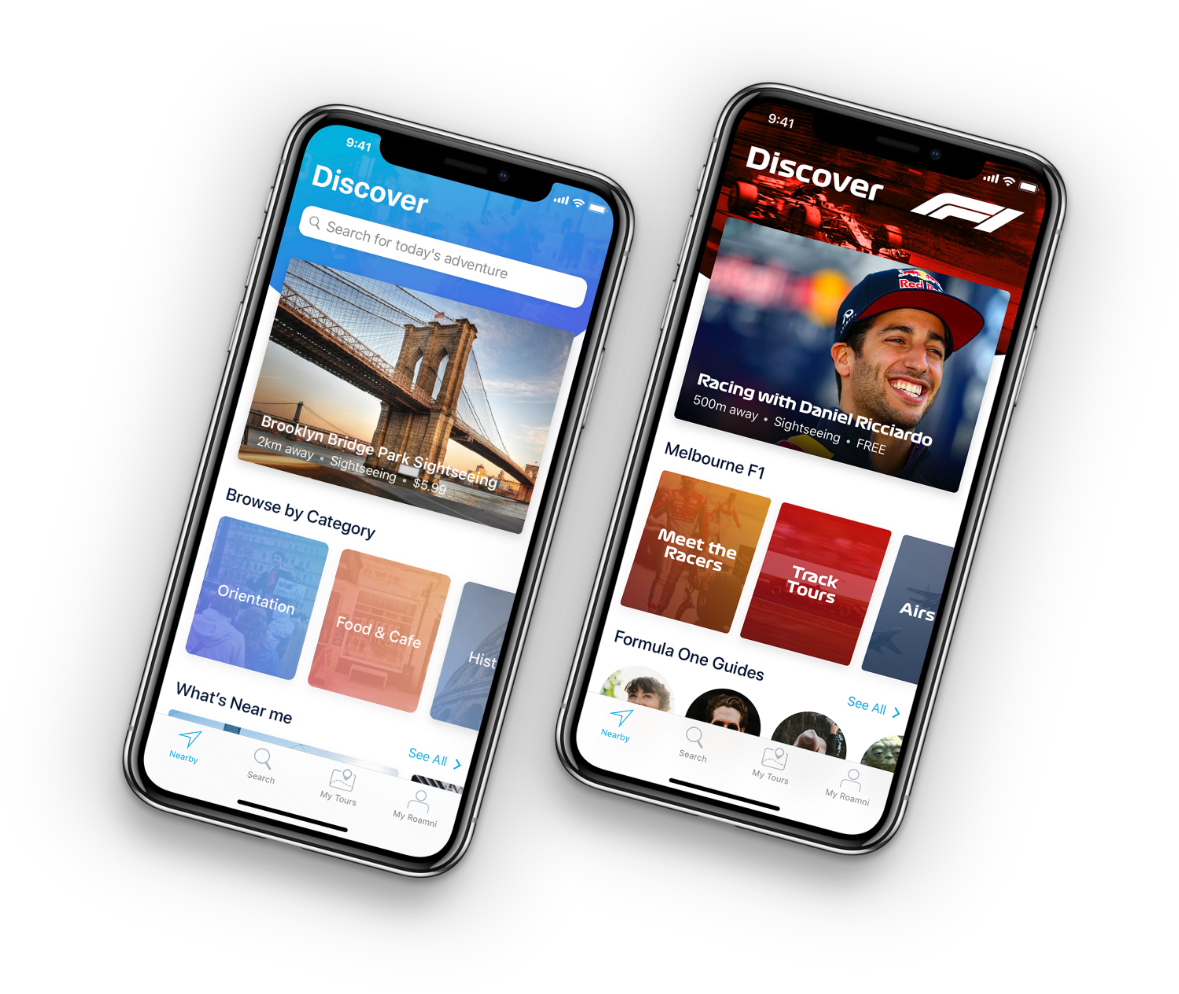How Hard Is It to Make an App in 2026 for Non-Techie Founders?

You want to build an app for your business but don’t know where to start. You’re in the right place.
With hundreds of founders and entrepreneurs consulting with our product strategists on the best course to take about their app development project, I understand how cumbersome it is to explore mobile app development if you don’t have a background in technology.
So, how hard is it to make an app these days?
If you want speed, a no-code app builder is a great choice. But if you’re after speed, quality, and custom features, working with professional app developers can bring your dream app to life. With the right team, you could build a successful app that can be worth billions of dollars.
In this article, we’ll break down the technical and business steps of app development, so you can confidently decide how to create an app your audience will love.
- Overview of the technical and business sides of app development
- What are the main technical aspects of app development?
- How long does it take to learn programming?
- What is the cost of studying coding?
- What is the fastest way to build a mobile app
- How do I hire someone to build a mobile app?
- How to build a profitable business app?
- How do you make money from apps?
- How to raise funds for an MVP app?
- What if my app idea is stolen?
- How do I know if my app gets traction?
- Should I build an iOS or Android app or both?
- How long does it take to build an app?
- How should I introduce my app to the market successfully?
Overview of the technical and business sides of app development
Building an app startup requires two key components:
1. Technical app development
The technical side involves using an app building platform or working with an app development company. Your choice depends primarily on your app’s complexity and budget. While no-code app builders offer quick solutions, custom development through an app development agency provides more flexibility.
2. Business strategy for mobile apps
You’re not just going to publish an app and do nothing. You also need to wear an entrepreneur hat, that is, if you don’t want to be among the 99% of apps that fail. Beyond app design and development, you need to focus on:
- Thorough market research
- Understanding your user interface needs
- Creating a minimum viable product
- Getting user feedback
- Planning in-app purchases for monetization
- Implementing app store optimization for visibility on the Apple App Store and Google Play Store
The good news is that you don’t have to figure out these technical and business components alone. This is where having an experienced product manager becomes invaluable if you work with an app development agency.
One of our product managers, Brian Wong, shares the importance of having one on your side.
![]()
Product managers should be seen almost like your partner or friend throughout the entire development process and even after. You should always involve your product manager in research, consulting, and planning. If you think of an agency as just a place where you hand off features for development, let me tell you why the best agencies, like ours, stand out—because we have product managers to guide you through the process.

Brian Wong
Product Manager
If you’re still thinking that a DIY approach is for you, let me walk you through some of the costs — time, effort, and money — involved if you want to learn how to code independently.
What are the main technical aspects of app development?
Think of it like building a restaurant. You need a talented chef (technical expertise) and a strong business plan (market strategy). One without the other won’t get you far. Let’s first take a look at the technical expertise.
- How long does it take to learn programming?
- What is the cost of studying coding?
- What is the fastest way to build a mobile app
- How do I hire someone to build a mobile app?
How long does it take to learn programming languages?
Mastering programming languages for mobile development varies in timeline. For starters:
- Kotlin (for Android devices): 4-6 weeks
- Swift (for iOS app store): 1-6 months
Why these programming languages matter:
- Power high-revenue apps
- Compatible with both Android app and native app development
- Support the creation of feature-rich complex mobile apps
The learning curve depends on your dedication and schedule. However, investing in these languages provides the foundation for building profitable native mobile apps.
Though you can study languages other than Kotlin and Swift, I highly recommend these two because I’ve seen how our app developers have used these tools to make apps that have earned more than $100 million in gross transaction value.
Aside from this, these two languages are compatible with Android and iOS, two of the world’s most popular mobile operating systems.
What is the cost of studying coding?
Coding education costs range from $0 to $100,000.
| Learning Path | Cost Range | Duration | Key Features |
|---|---|---|---|
| Online Courses | $0-$10,000 | Self-paced |
|
| Bootcamps | $5,000-$20,000 | 3-6 months |
|
| College Degree | $18,000-$80,000 | 4+ years |
|
Each option offers different benefits.
Online courses provide flexibility, bootcamps offer intensive practical training with instructor support, and degrees comprehensively cover both software and hardware.
Choosing learning platforms with interactive features can enhance retention and practical application, especially when supplemented by hands-on exercises.
Ensure you select one that aligns with your learning style and career goals. Independent learners may prefer online courses, while those wanting structured guidance should consider boot camps or degrees.
But wait, if you’re a founder or entrepreneur, you don’t have time to do all this stuff. The smart move is to build a business and let the experts do the work and launch faster, right? Which brings me to my next point.
What’s the fastest way to build a mobile app?
Drag-and-drop builders offer the quickest path to creating mobile apps with:
- No coding required
- Simple drag-and-drop interface
- Immediate visual results
But what’s the trade-off if you use this route?
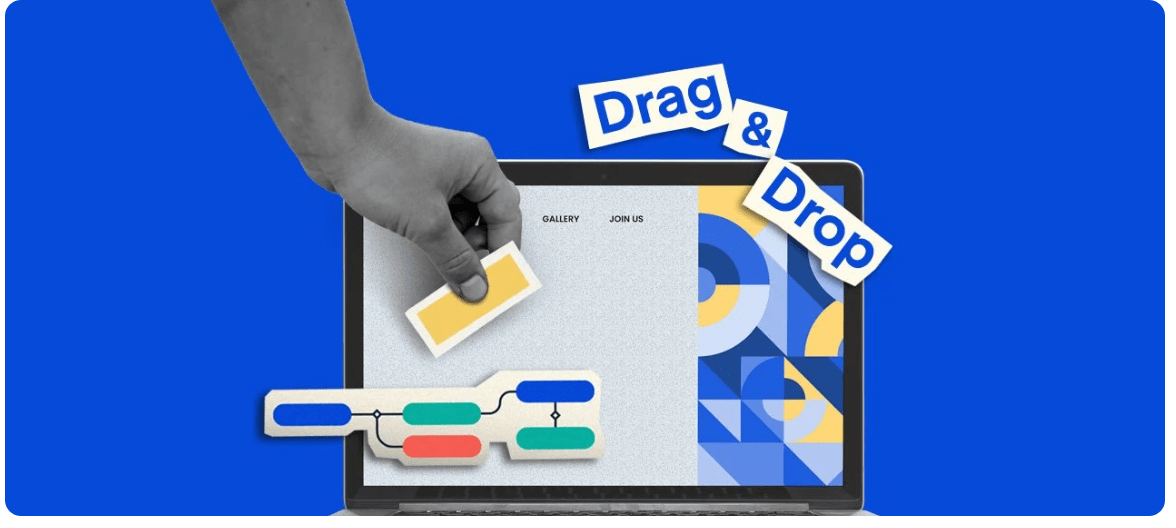
Source: Trio
While faster, these builders offer limited customization compared to coding in Kotlin or Swift, potentially resulting in an app with basic functionality.
You can also use UI design software to visualize your app’s look and feel before committing to full development.
This is ideal for simple eCommerce apps, basic business apps, or testing your app idea for product-market fit. However, if you need advanced features, unique designs, and superior app performance, I’d say go for native app development.
How do I hire someone to build a mobile app?
Building a mobile app offers two main hiring paths: forming an in-house team or outsourcing to an agency.
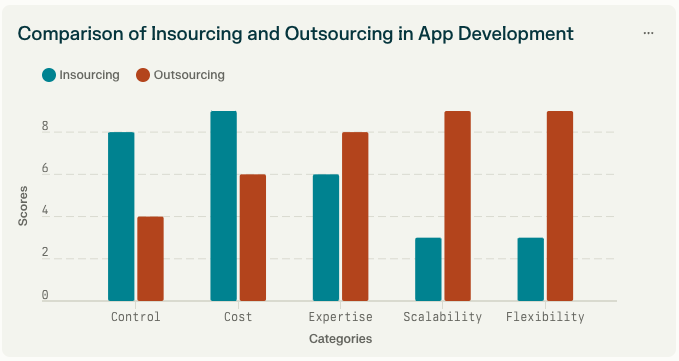
An in-house team provides direct oversight and better quality control but comes with higher costs due to regular salaries, benefits, and overhead expenses — even during project downtime.
Outsourcing to an app development agency with real expertise typically offers a better return on investment, giving you access to diverse high-performing talent, including app developers and product strategists who can ensure both technical excellence and market success create an app. This option provides more flexibility since you can engage their services only when needed.
Both approaches can deliver quality results — the key difference lies in resource commitment and budget allocation.
How to build a profitable business app?
Building a successful business app requires both technical development and business strategy. Partner with an experienced mobile app development agency to get:
- Technical expertise for quality development
- Business strategists for market viability
- Guidance on funding and monetization
- Cost-efficient development process
Your app needs a clear revenue model since maintenance requires ongoing investment, even for non-profit applications.
Let’s take a look at how the business aspect works below:
- How to make money from apps
- How to raise funds for an MVP app
- What if my app idea is stolen?
- How do I know if my app gets traction?
- Should I build an iOS or Android app or both?
- How long does it take to build an app?
- What should I do to introduce my app to the market successfully?
How do you make money from apps?
There are many ways you could earn revenue from your app. You can explore these options depending on your income strategy.
1. App store revenue
iOS apps generally earn more despite a lower market share. Choose iOS development for higher income potential, but expect stricter quality standards from the Apple app store.
2. Monetization options
- Free apps with advertising/affiliate marketing
- In-app purchases
- Hybrid models combining multiple revenue streams
The key is to balance revenue generation with user experience because excessive ads may increase short-term earnings but reduce app retention. At the end of the day, you should match app monetization to your target users.
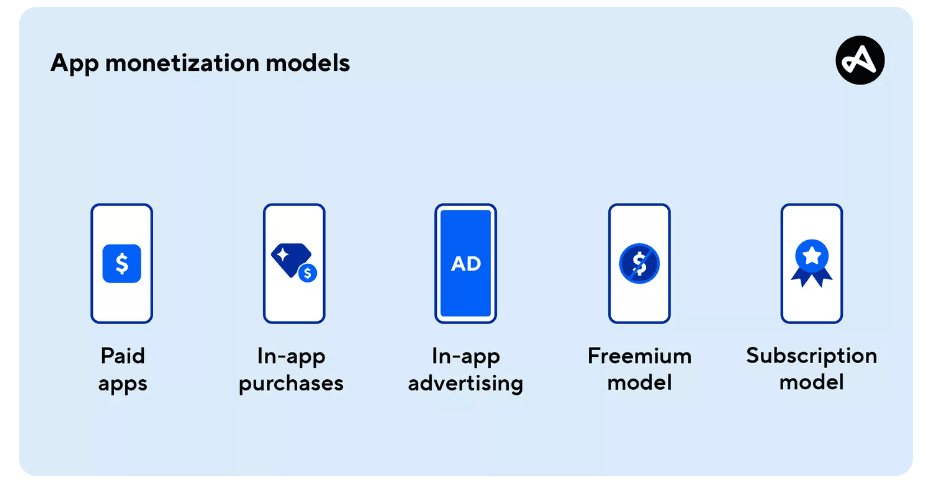
Source: Adjust
The essence is quality over aggressive monetization. A well-executed iOS app often outperforms Android in revenue, though Android’s larger user base offers good potential through strategic advertising.
How to raise funds for an MVP app?
Just like any business, an app business requires capital — a lot of it.
Though successful apps can bring huge returns on investment, the sobering reality is that app development costs can be quite high.
But the glimmer of hope is that since app businesses are highly scalable, investors have devised creative ways to fund successful app startup, design and development.
Some of these financing vehicles go beyond the usual bank loan or stock options, giving app visionaries more leeway when raising funds.
Good Empire founder Andre Eikmeier knows the financing leeway that app startups enjoy. He was able to raise capital through equity crowdfunding.
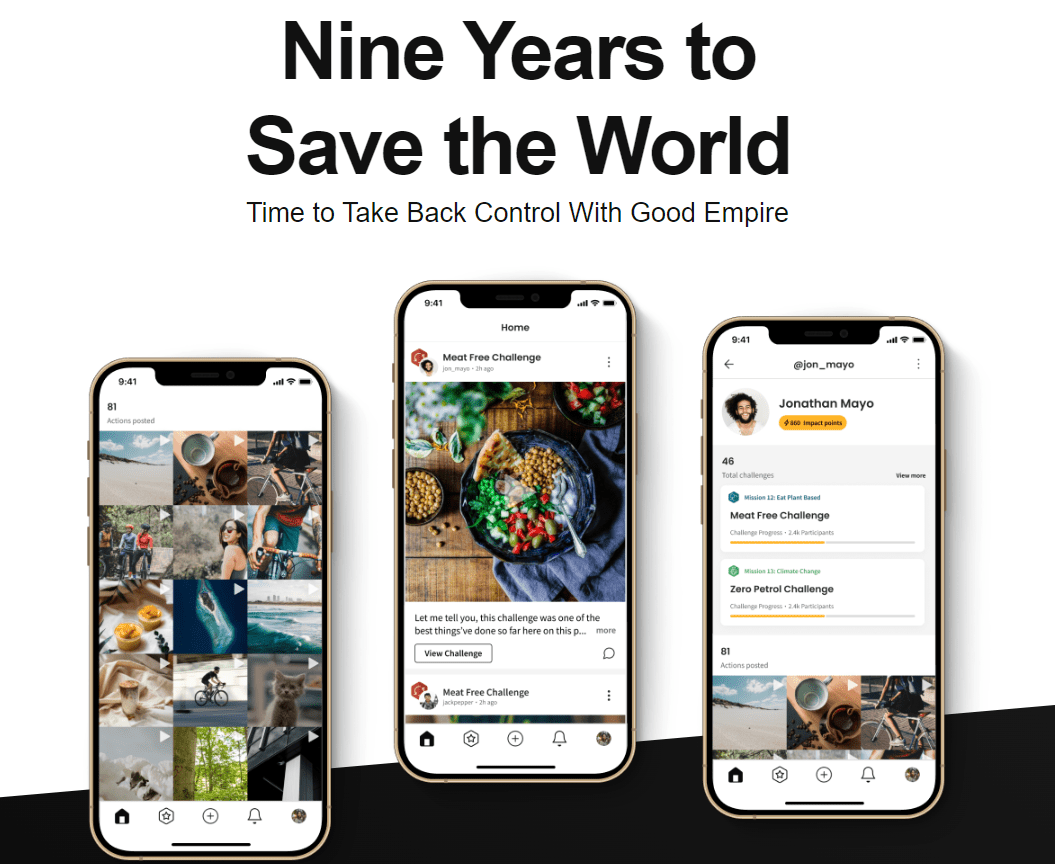
This form of crowdfunding involves offering investors stocks in exchange for financing. But since crowdfunding websites are more accessible than stock trading platforms, Andre had a relatively easier time raising funding.
Eventually, Andre used the funding he acquired to create a social video challenge app that inspired people to contribute their share in protecting people and the planet.
What if my app idea is stolen?
Theft isn’t unavoidable. That’s the reality. App idea theft can derail your business if you let fear control development. While protecting intellectual property is crucial, don’t let it prevent essential steps like:
- Sharing with potential partners
- Conducting user research
These activities are vital for developing your own app or idea, thus…
To get past the fear of idea theft, you could do any combination of the following:
- Use non-disclosure agreements
- Secure a patent for your app
Non-disclosure agreements (NDAs) are basically contracts stating that anyone who learns about your app and signs an NDA (whether they be potential investors, or hire app developers, agencies, or survey respondents) would promise not to reveal your app idea to anyone else. Otherwise, you could pursue legal action against these NDA signers.
NDAs work well with patents in providing protection for your app idea. To learn more about NDAs and other similar safeguards, check out our article on how to patent an app idea.
How do I know if my app gets traction?
The best way to get traction is by validating market fit through targeted surveys with family and friends, and you can go beyond via paid surveys. Focus on identifying clear user problems your app solves. This prevents building features nobody wants — a major startup failure point.
For more information on market research, brainstorming, and other crucial steps in bringing app ideas to life, read our article on how to develop an app idea.
Should I build an iOS or Android app or both?
Native apps require separate development for iOS and Android — you’ll need two distinct apps. While hybrid and web apps work on both platforms with a single codebase, they offer fewer features and lower performance than native apps. They’re ideal for businesses that don’t need sophisticated graphics or ultra-fast loading speeds to create apps.
Native apps are more complex, while hybrid or web apps offer a simpler development process.
One of our app developers Adonis Dumadapat shared with me his thoughts about native and hybrid apps.
![]()
Many people take the high-speed approach—developing once and compiling it into both Android and iOS. Yes, you save some money upfront, but in the end, you’ll definitely encounter problems. I can’t say exactly what those problems will be, but they will happen. So, go native.

Adonis Dumadapat
App Developer
Ultimately, the app development process is generally easier if you’re making a hybrid or web app. Native apps tend to be harder to build but you can add custom features without sacrificing performance — thus both being equally good, depending on which route you want.
Here’s a table for comparison to help you further understand the differences.
| Features | Native Apps | Hybrid & Web Apps |
|---|---|---|
| Platform Compatibility | Platform-specific (separate iOS and Android apps needed) | Cross-platform (one app works on both) |
| Performance | Optimal speed and responsiveness | Moderate performance |
| Features | Full access to platform capabilities | Limited platform feature access |
| Development Effort | Higher (separate codebases) | Lower (single codebase) |
| Best For | Graphics-intensive apps, games, high-performance requirements | Content-focused apps, basic functionality, broad platform coverage |
To learn the best app-building process for your business needs, check out our blog on native vs. web apps and our article comparing hybrid and native apps.
How long does it take to build an app?
The app development timeline primarily depends on developer expertise and app complexity. Experienced developers using efficient tools reduce development time, while complex features, rich media, and third-party integrations extend it.
The most efficient approach is starting with an MVP (Minimum Viable Product), focusing only on core features needed for market entry. This proven method reduces initial development time and costs while allowing faster market testing.
Now, if you’re thinking of working with the Appetiser Apps team, they are using our proprietary framework called Appetiser Baseplate™.
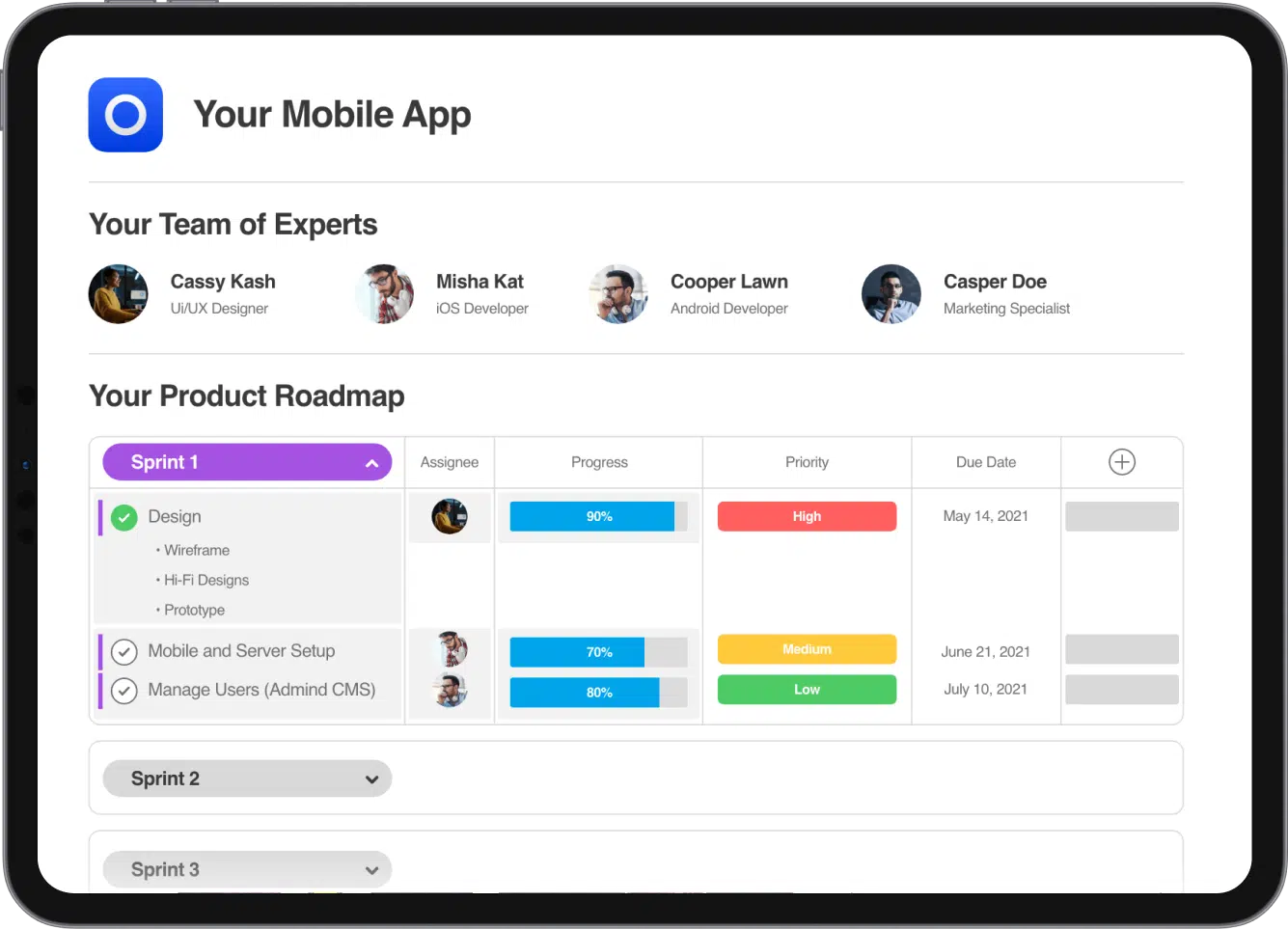
This framework reduces time-to-market from 7.2 months to just 4 months for common consumer apps. This framework provides pre-built functionalities, allowing developers to focus on creating unique features rather than repetitive tasks.
What can you get from this framework?
Key benefits of Appetiser’s Baseplate include:
- Cuts iOS development time by almost 50% while maintaining quality
- Enables rapid, agile development with tangible weekly progress
- Provides a comprehensive blueprint for harmonious app development
Appetiser’s Baseplate technology can significantly speed up your app development process while ensuring high-quality results.
What should I do to introduce my app to the market successfully?
Once you’re finished developing an app, it’s time to launch it in the app stores and other channels. If you’re thinking about which is the most effective and at the same time free, social media should be part of your priorities.
Brian Wong, our product manager confirms this, here’s what he said…
![]()
Social media is probably the most powerful tool at the moment in acquiring app users and has the potential to help you engage with millions of users. I highly recommend this strategy—it’s low cost, and efficient. All you need is time and creativity, and you’ll be able to launch successful campaigns practically free.

Brian Wong
Product Manager
In general, here are some strategies you could look into as well:
1. App Store Optimization (ASO)
Optimize your app’s metadata, including title, description, and keywords, to improve visibility on app stores. Use a catchy name that reflects your app’s content and purpose.
2. Pre-launch marketing
Develop a strong pre-launch marketing strategy to build anticipation. This includes creating a pitch deck, press release, and PR contact list.
3. User acquisition across channels
Implement a mix of organic and paid marketing strategies to attract users. Consider social media marketing, influencer partnerships, content marketing, and paid advertising. Coordinating these efforts through well-planned PR campaigns can maximize reach and generate buzz before and after launch.
4. Launch strategy
Conduct a soft launch in a limited market to gather initial feedback before full release. Ensure your app meets all guidelines for app store submission and is thoroughly tested for a bug-free release.
5. Post-launch optimization
Continuously gather user feedback and make regular updates to improve your app’s performance and features. Respond promptly to user reviews and address concerns to maintain a positive app store rating.
6. Leverage analytics for future improvement.
Use mobile analytics tools to understand user behavior, identify pain points, and inform future updates.
Well, at the end of the day, here’s the hard truth about making an app.
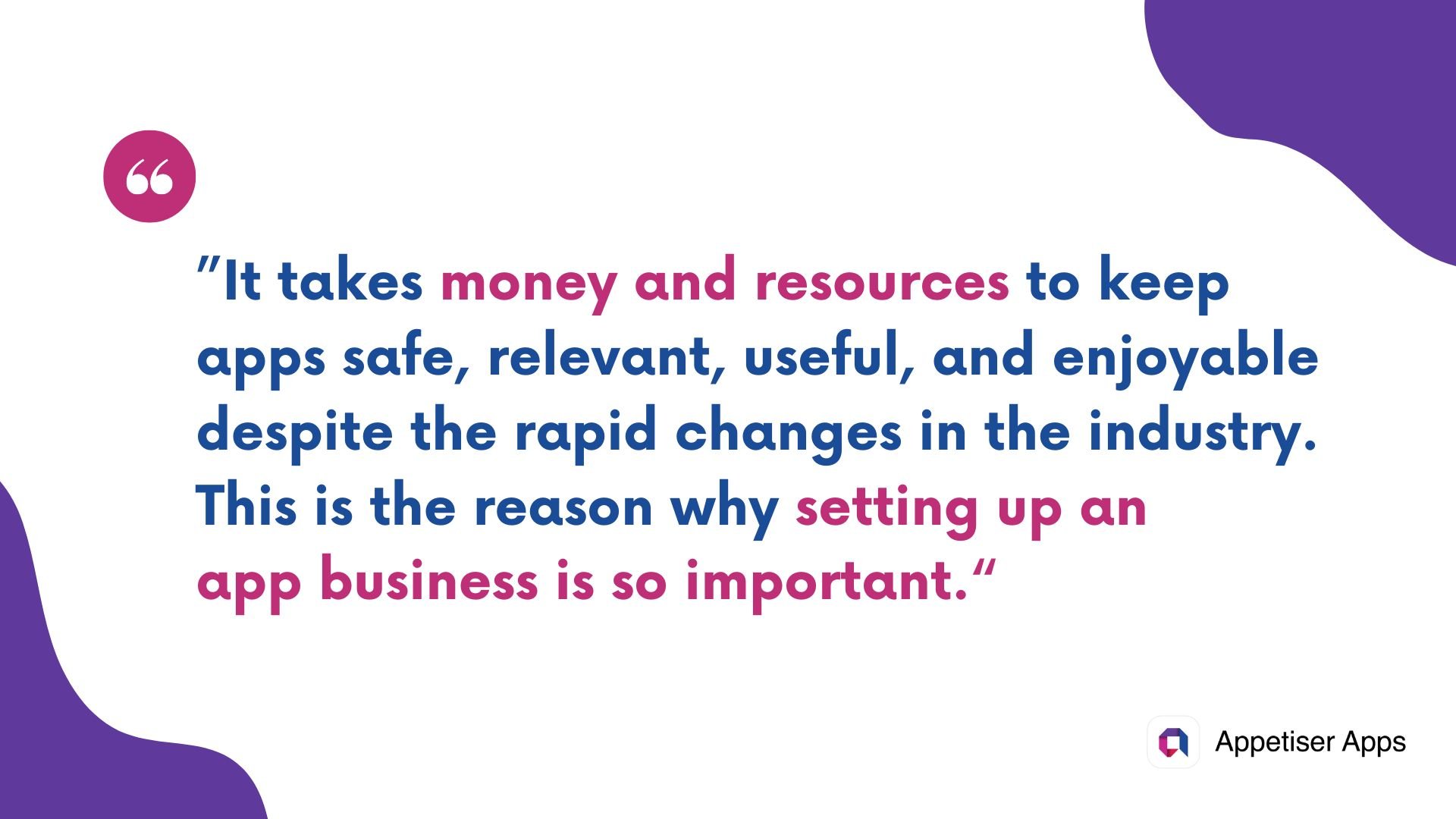
How hard it is to make an app: The verdict
The answer to this question can’t be purely technical. Developing an app is a journey of creativity, strategy, and relentless pursuit of excellence. In a highly digitalized and connected world, the business side of making apps has become as crucial as the technical aspect.
Whether you’re talking about writing code to power an app or setting up an app business, it becomes less difficult if you’re willing to work with the right partners in your app development journey.
Of course, it’s possible to become that genius who can single-handedly create world-class apps. But given that there are more than 8 million mobile apps globally, the chance of succeeding as a lone wolf has become slim. Or if you do succeed alone, it could take some time. Time better spent getting your app to market quickly and benefiting greatly from it.
There is no shame in asking for help, even if you’re as smart as Bill Gates. Though Gates could code software on his own, his company’s employees built the momentum that led to his billion-dollar earnings.
As Microsoft amplified Gates’ vision, let us do likewise for you. Hit us up for a free consultation, and let’s work together to turn your idea into a sustainable and successful app.

Jesus Carmelo Arguelles, aka Mel, is a Content Marketing Specialist by profession. Though he holds a bachelor’s degree in business administration, he also took courses in fields like computer troubleshooting and data analytics. He also has a wealth of experience in content writing, marketing, education, and customer support.


